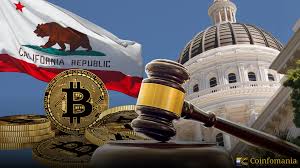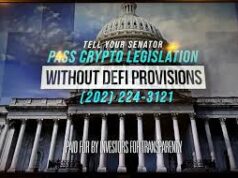When California enacted its new law to protect unclaimed cryptocurrency from forced liquidation, it didn’t just tweak an old statute — it redefined how states treat digital assets. As of October 2025, Senate Bill 822 ensures that unclaimed crypto like Bitcoin and Ethereum are preserved in their native form rather than being automatically converted to cash. (Decrypt)
This shift matters deeply for crypto holders, exchanges, custodians, and state regulators alike. In this article, I’ll walk through what the law does, why it matters, what challenges lie ahead, and how it may influence broader national or even global trends.
The Problem: Forced Liquidation Under the Old Regime
Before SB 822, California’s unclaimed property framework was built on decades-old rules designed for bank accounts, securities, and insurance proceeds. When an account was deemed “abandoned” after a dormancy period (say, three years of inactivity), holders (banks or financial institutions) would often liquidate assets to turn them into cash, and then remit that cash to the state as unclaimed property.
With cryptocurrencies, this presented a fundamental mismatch:
- Volatility risk: Liquidating a coin at one moment might deprive the rightful owner of appreciation or expose them to loss.
- Tax consequences: Forced sales can trigger taxable events without the owner’s consent.
- Legal uncertainty: It wasn’t clear whether “property” included private keys, on-chain balances, decentralized wallets, or how exchanges should handle them.
In effect, the old law treated crypto as if it were plain vanilla financial instruments — which it is not.
What SB 822 Actually Does
Brings Crypto into the Unclaimed Property Law
SB 822 explicitly amends California’s Unclaimed Property Law (UPL) to include digital financial assets such as Bitcoin and Ethereum. In doing so, it declares that unclaimed crypto is a kind of intangible personal property — analogous to bank balances or securities — and places it under the same legal umbrella. (Decrypt)
That means exchanges, custodians, and other holders must now follow certain procedures when dealing with dormant crypto accounts.
Notification Requirements & Dormancy Reset
Before any asset is declared unclaimed, SB 822 requires holders to attempt contact with the “apparent owner” between six and twelve months in advance (using a Controller-approved form). If the owner responds (for example, by logging in or transacting), the dormancy clock resets. (CoinCentral)
This ensures that users are not surprised by a sudden transfer simply because they missed an email or forgot to check.
In-Kind Transfer: No Forced Conversion
One of the landmark features is that holders must transfer the exact crypto asset — including private keys or access information — unliquidated (i.e., in its native form) to a state-approved custodian within 30 days after final reporting. Converting to cash before transfer is prohibited. (Decrypt)
This preserves the upside potential (or downside risk) inherent in crypto markets, avoiding forced taxable events or loss of coin-specific characteristics.
Optional Conversion after Holding Period
However, SB 822 does allow the State Controller’s office to convert unclaimed crypto to fiat 18 to 20 months after filing, if needed. Claimants still have the right to recover either the original assets (if not yet sold) or the proceeds if conversion occurred. (Decrypt)
Thus, the law balances the state’s need to manage long-term dormant assets with respect for owner rights.
Custodian Licensing & Security
To safeguard these digital assets, the law mandates that custodians be licensed under California’s Department of Financial Protection and Innovation. The state may appoint one or more such custodians, and the assets must be held subject to audit, segregation, and security obligations. (Decrypt)
This ensures that unclaimed crypto doesn’t vanish or get mismanaged while in custody.
Why This Law Matters: Consumer Protection & Market Clarity
Protects Owners Against Unfair Loss
By preventing forced liquidation, the law protects owners from losing out if their crypto later surges. Without this, dormant crypto would essentially be converted at a possibly unfavorable time, robbing owners of potential gains.
Clarifies Exchange & Custodian Obligations
Crypto platforms now have legal guidelines for dealing with dormant accounts. Instead of ambiguity about how to comply with unclaimed property laws, they must follow prescribed steps: notify, reset dormancy where possible, and transfer in kind. This reduces legal risk and gray zones in compliance. (Compliance Circle)
Sets a Precedent for Other States
California is the first U.S. state to explicitly protect unclaimed crypto from forced liquidation. (Edgen) Other states are watching, and some are reportedly considering similar measures (e.g. Michigan, Texas). (CoinCentral)
If others follow, we could see a more uniform national standard.
Challenges & Open Questions
Private / Self-Custodied Crypto
SB 822 is focused on crypto held via exchanges or custodial platforms, not those stored entirely in private wallets by individuals. If someone holds Bitcoin in a cold wallet and never interacts with a custodian, the law likely does not apply to that. (Decrypt)
Thus, self-custody remains outside this regime.
Privacy & Notification Burdens
Requiring holders to contact owners (e.g., via email or address) may raise privacy or logistical concerns, especially for users who gave minimal onboarding data or whose contact info has changed. Ensuring that notification systems are reliable and nonintrusive is a hurdle.
Disputes, Claims & Timing
What happens if someone claims after the state converts to fiat? Will they have to accept proceeds rather than original coins? The timing windows (e.g. 18–20 months) could become battlegrounds. Also, dispute resolution, audit transparency, and potential legal challenges (e.g. constitutional claims) remain to be tested.
State Liability & Custodian Risks
Handling crypto introduces operational risks: hacks, key loss, or mismanagement. The state must ensure custodians adhere to strict security standards. Otherwise, owners might lose assets through no fault of theirs.
What Crypto Users and Platforms Should Do
For Exchanges & Custodians
- Build or adjust notification systems (6–12 month window)
- Track dormancy metrics per user/account
- Be able to package accounts’ private keys and metadata for transfer
- Engage with the State Controller’s Office to qualify as licensed custodian
- Monitor reporting deadlines and required audit/compliance steps
For Crypto Users in California
- Keep your contact information current on exchanges
- Log in or transact occasionally to reset dormancy
- If you had dormant funds, check with the state’s unclaimed property database
- Understand that your crypto may be transferred, but should remain in its original form
Implications Beyond California
When one influential state enacts forward-looking legislation, others tend to follow. California’s model could become a blueprint for:
- Federal legislation or guidance to create uniform standards across states
- Industry best practices for custodial providers nationwide
- Consumer expectations about how crypto is treated legally
- International approaches as countries grapple with dormant digital assets
Already, legal scholars and crypto advocates view SB 822 as a landmark step toward legitimacy and consumer safety in the crypto space. (Yahoo Finance)
Final Thoughts: A Balanced Step Forward
California’s law strikes a meaningful balance. On one hand, it modernizes existing unclaimed property rules to account for crypto’s unique traits. On the other, it protects holders from forced liquidation, unwanted taxes, or value loss. The procedural safeguards—notification windows, licensure for custodians, optional conversion timing—show that lawmakers recognized both opportunity and risk.
Of course, the real test begins now: implementation, claims, litigation, and whether other states replicate or refine this model. But for crypto users in California, SB 822 is a welcome shield, not just another regulation.
If you like, I can also produce an SEO-optimized version (with meta tags, headings, alt texts) or a shorter summary. Just say the word.
Sources:
- Decrypt — “California Governor Signs Law Protecting Unclaimed Crypto From Forced Liquidation” (Decrypt)
- CoinCentral — “California Becomes the First State to Protect Unclaimed Crypto from Forced Liquidation” (CoinCentral)
- The Block — “California approves law to preserve unclaimed crypto in native form” (The Block)
- Edgen.Tech — “California enacts landmark law to protect unclaimed cryptocurrency from liquidation” (Edgen)
- Invezz — “California passes law to protect unclaimed crypto from forced liquidation” (Invezz)
- Compliance Circle — “Setting the Record Straight on California’s AB 1052 and Unclaimed Property in the Crypto Era” (Compliance Circle)
- Holder.io — “California Shields Unclaimed Crypto from Forced Liquidation” (holder.io)



























